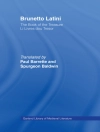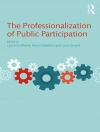A consideration of the ways in which the past was framed and remembered in the pre-modern world.
The training and use of memory was crucial in medieval culture, given the limited literacy at the time, but to date, very little thought has been given to the complex and disparate ways in which the theory and practices of memoryinteracted with the inherently unstable concepts of time and gender at the time. The essays in this volume, drawing on approaches from applied poststructural and queer theory among others, reassess those ideologies, meanings and responses generated by the workings of memory within and over ‘time’. Ultimately, they argue for the inherent instability of the traditional gender-time-memory matrix (within which men are configured as the recorders of ‘history’and women as the repositories of a more inchoate familial and communal knowledge), showing the Middle Ages as a locus for a far more fluid conceptualization of time and memory than has previously been considered.
Elizabeth Cox is Lecturer in Old English at Swansea University; Roberta Magnani is Lecturer in Medieval Literature at Swansea University; Liz Herbert Mc Avoy is Professor of Medieval Literature at Swansea University.
Contributors: Anne E. Bailey, Daisy Black, Elizabeth Cox, Fiona Harris-Stoertz, Ayoush Lazikani, Liz Herbert Mc Avoy, Pamela E. Morgan, William Rogers, Patricia Skinner, Victoria Turner.
Table of Content
Introduction:
In principio: The Queer Matrix of Gender, Time and Memory in the Middle Ages – Liz Herbert Mc Avoy
The Pitfalls of Linear Time: Using the Medieval Female Life-Cycle as an Organizing Strategy – Patricia Skinner
Medieval Expiration Dating? Queer Time and Spatial Dislocation in
Aucassin et Nicolette – Victoria Turner
Remembering Birth in Thirteenth- and Fourteenth-Century England – Fiona Harris-Stoertz
‘Ides gnornode/geomrode giddum’: Remembering the Role of a
friðusibb in the Retelling of the Fight at Finnsburg in
Beowulf – Elizabeth Cox
Remembrance and Time in the
Wooing Group – Ayoush Lazikani
Gendered Strategies of Time and Memory in the Writing of Julian of Norwich and the Recluse of Winchester – Liz Herbert Mc Avoy
Gendered Discourses of Time and Memory in the Cult and Hagiography of William of Norwich – Anne E. Bailey
Re-membering Saintly Relocations: The Rewriting of St Congar’s Life within the Gendered Context of Romance Narratives – Pamela E. Morgan
A Man out of Time: Joseph, Time and Space in the N-Town Marian Plays – Daisy Black
Dismembering Gender and Age: Replication, Rebirth, and Remembering in
The Phoenix – William Rogers
About the author
LIZ HERBERT MCAVOY FLSW is Professor Emerita of Medieval Literature at Swansea University and Honorary Senior Research Associate at the University of Bristol.












